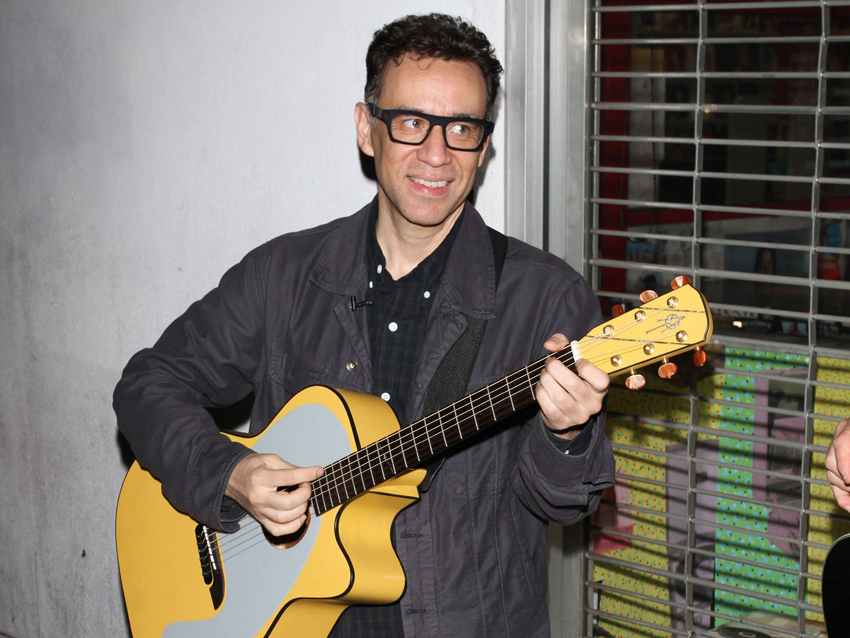
Fred Armisen: the 10 records that changed my life
For a guy who has consistently flown somewhat under the radar, actor-director-writer-producer-comedian and musician Fred Armisen boasts the kind of multi-hyphenate status that would make most Hollywood A-listers green with envy. And last February, the busy Portlandia star added yet another impressive credit to his already crammed CV and took perhaps one of his biggest steps towards the mainstream when he signed on as guitarist, leader and “curator” of the in-house 8G Band for Late Night With Seth Myers.
“I feel really lucky that I get to do music along with everything else,” Armisen says. “Some actors and comedians try to play music later in their careers, almost as a bit of a hobby. But I’ve always been a musician; it’s an integral part of my life and what I do.”
Armisen’s first notable musical gig was as the drummer for the ‘90s Chicago-based post-hardcore outfit Trenchmouth. After short stints as a background drummer for the Blue Man Group and as a leader of his own salsa band, he joined the cast of Saturday Night Live in 2002 – and a host of memorable, fictitious musical characters (Ian Rubbish, Fericito, Giuseppe) and fake bands (A Taste Of New York, The Blue Jean Committee, The Bjelland Brothers) followed.
One of his most popular alter egos, the intensely serious drummer Jens Hannemann, whose “complicated drumming technique” (time signatures of 29/3, learning all 17 of your tom-toms, mastering the art of dominating a jam session) was broken down in a 2007 instructional DVD, was so earnestly spot-on that some folks didn’t pick up on the joke.
"I love seeing comedy and music, particularly comedy and drumming, go together," Armisen says. "And it's not the first time, either: Keith Moon had elements of humor in his whole being. And don't forget, Peter Sellers was a drummer. There’s a link and a history to be found in all of this.”
A pair of recently released Hometown Heroes singles of his most famous comedy bands (The Blue Jean Committee/The Fingerlings, The Bjelland Brothers/A Taste Of New York; an earlier single featuring the sketch group Crisis Of Conformity was issued in 2011) would suggest that, even with his high-profile day-job bandleader gig, Armisen isn't quite ready to play it entirely straight. Yet when asked by MusicRadar to discuss the "10 records that changed his life," he leapt at the opportunity to unabashedly wear his musical heart on his sleeve.
“Music still moves me just as much as when I was a kid," Armisen explains. "There’s so many great bands to discover all the time. But what’s also cool is that, with some things that you might have missed the first time around, you get to discover them on your own. All of a sudden I’ll hear Al Stewart, so I’ll buy one of his records and go, ‘Who is this guy?’ To me, that's one of the great things about being alive."
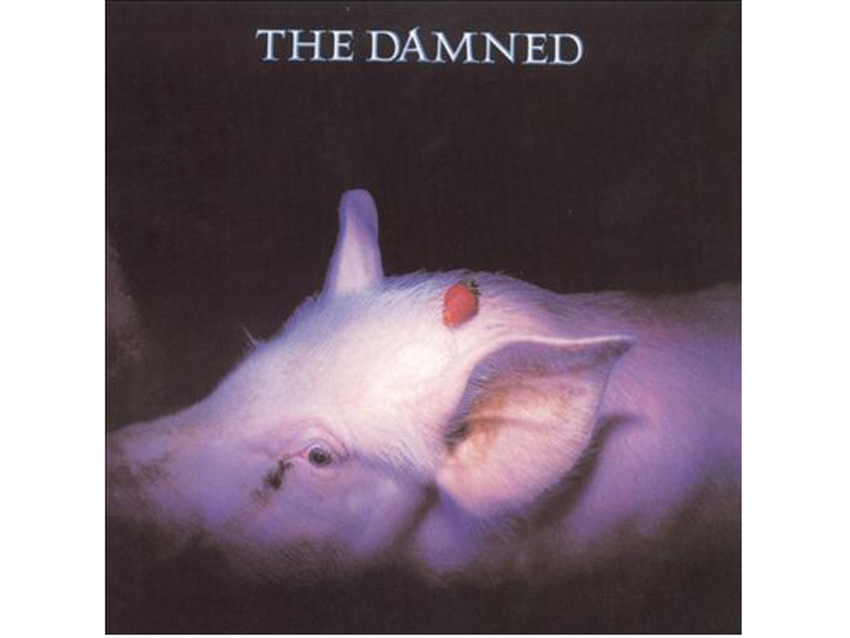
The Damned - Strawberries (1982)
“In putting this list together, I noticed a theme running through some of my choices – bands doing something completely unexpected. Whenever a band does something really new or different, it’s like a gift. My reaction is always like, ‘Wow, I want to write them a letter to say thank you.’
“And so that brings me to The Damned. Captain Sensible is brilliant, amazing songwriter, but then everybody in the band is great. There’s a song on this record called Life Goes On that is so beautiful and has gotten me through all kinds of difficult times. That's just about the best thing you can say about any piece of music, when it can help move you through life.
"The whole album is extraordinary. The album cover, the a pig with a strawberry on its head – it was punk because it wasn’t punk. All of the other punk covers were things like, you know, a band in an alleyway and things like that. This was different, and it was, in its own way, gorgeous.
“It changed my life because it changed my perception of how to make great art, what it was to be punk and how far you could go as a group.”
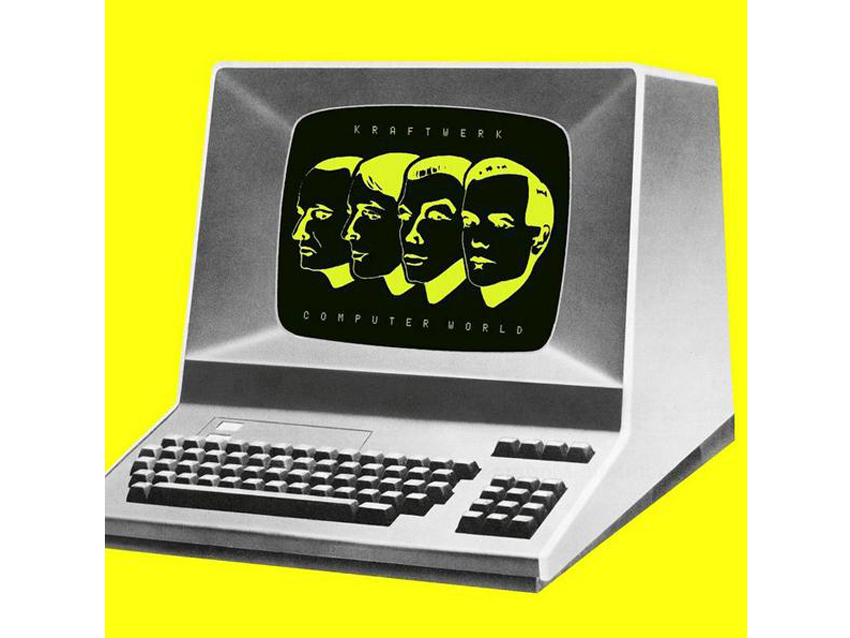
Kraftwerk - Computer World (1981)
“When you’re a teenager, you have a job to do – to confuse your parents. My parents were pretty supportive of me and my music, but the truth is, you don’t want you parents to understand. They’re not supposed to get it.
“At the time, if you played rock music, there were a lot of guitar solos, and things were mystical with wizards and stuff. And because bands like that were on TV so much, they weren’t shocking anymore. Some guy with long hair is playing a guitar solo – parents were used to it.
“When this album came out, it was a little scary to me. There were robots of Kraftwerk on the back cover – ‘Is that them? Nooo… Hey, wait, it is them… No, no, it’s not.’ The fact that they were from Germany and that it was about computers, which in 1981 was still very foreign to people – it was truly confusing. There was no cursing on it, there was no anger in it, and it was this robot album. So job number one was completed.
“The second thing was the sound itself. If I listened to this record on my turntable, the drum tracks, the rhythms, were these clicks. Before this, all of the rhythms I’d ever heard before were on actual drums. Kraftwerk are known as a computer band, but they’re really full of rhythm. The clicks of the needle on my turntable translated better than a microphone on a drum. The stereo speaker created a rhythm. So here was this new level of drumming and percussion – it made a huge impression on me.
“When I listened to the record on my speakers, it sounded great. Today, if I played it on a laptop or an iPad, it would still sound good. I think it’s because the bandwidth of the actual hit is still the same. It works on a phone, a computer or everywhere.”
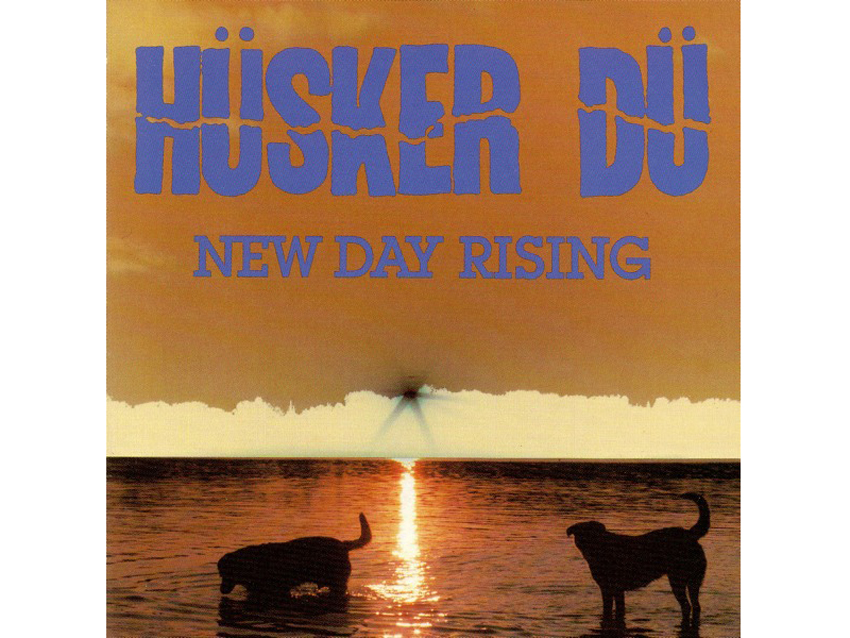
Husker Du - New Day Rising (1985)
“Like with The Damned, it came out at a time when everything was so noisy and angry. This was angry too, but it had such beautiful melodies on it. Celebrated Summer is one of the most gorgeous ever written. It just seems to capture everything that’s great about growing up and being a teenager.
“Husker Du and New Day Rising are important because they represent my first love affair with American music. Up to this time, everything was kind of British for me. Even though Bad Brains and Minor Threat were definitely in my life, Husker Du seemed really American. I had never been to the Midwest, but because of them I imagined what that area of the country was like. The way they looked, I thought, ‘Wow, that’s what you look like if you’re from America.’”
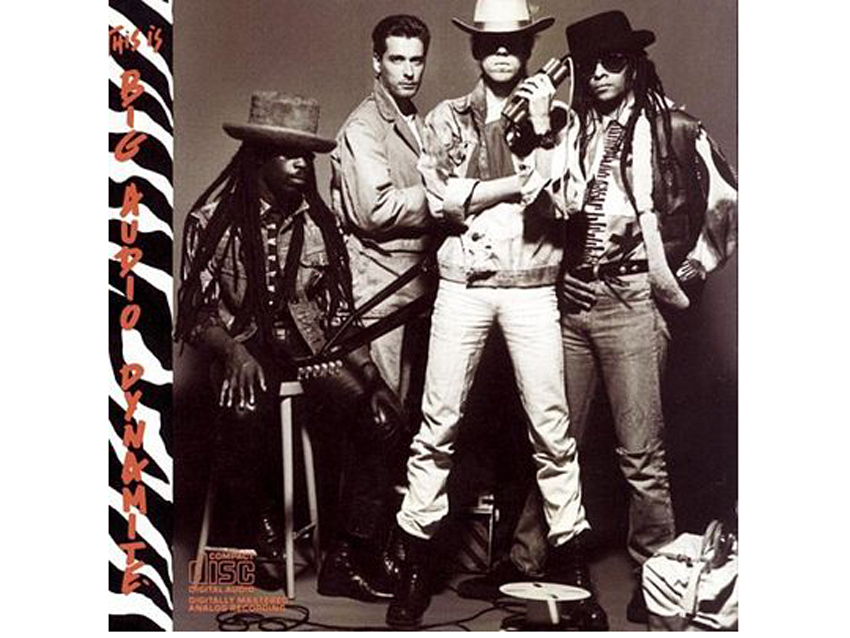
Big Audio Dynamite - This Is Big Audio Dynamite (1985)
“Of course, I loved The Clash. We all loved The Clash. This Is Big Audio Dynamite was significant to me because it was about reinventing yourself. Imagine a friend showing up at your door after a few years, but it’s a mature version of that person you first knew. That’s what this album was like to me.
“I always liked Mick Jones’ voice, and he sounds great here, especially on E=MC2, which is such a cool new kind of music. I went to see Big Audio Dynamite on their first tour of the United States, and I absolutely loved them.”
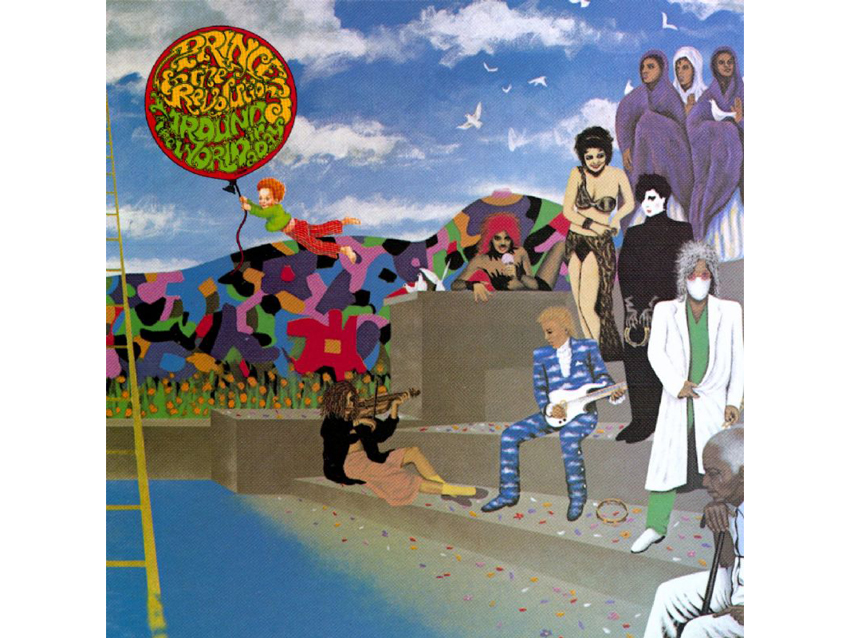
Prince - Around The World In A Day (1985)
“Prince totally changed my life and my perception of music. Everything that The Beatles were, everything that punk was, he was that big. He was able to shock and surprise me, but at the same time he opened me up to so many different kinds of music.
“I believed in 1999 and I believed in Purple Rain, but when this album came out, everything turned upside-down for me. It’s when I truly recognized Prince as a genius for generations and generations. I never imagined that somebody could make a record so different from the previous one, but he did it.
“The song Pop Life is great – it’s so moving and it flows so well. And then there’s Raspberry Beret, which is just like all the music that I love rolled into one. The whole record is brilliant. And the album cover – it’s hand painted, really colorful and beautiful.
“When this record came out, I was working at a place on Long Island that recycled cans; it was this kind of my weird high school job. There was a fellow worker there who played music on his boom box, and one day the song Pop Life came on. I was like, ‘What the hell is this?’ I didn’t even realize it was Prince, but I just loved it. For some reason, it was a really nice way to be exposed to this album."
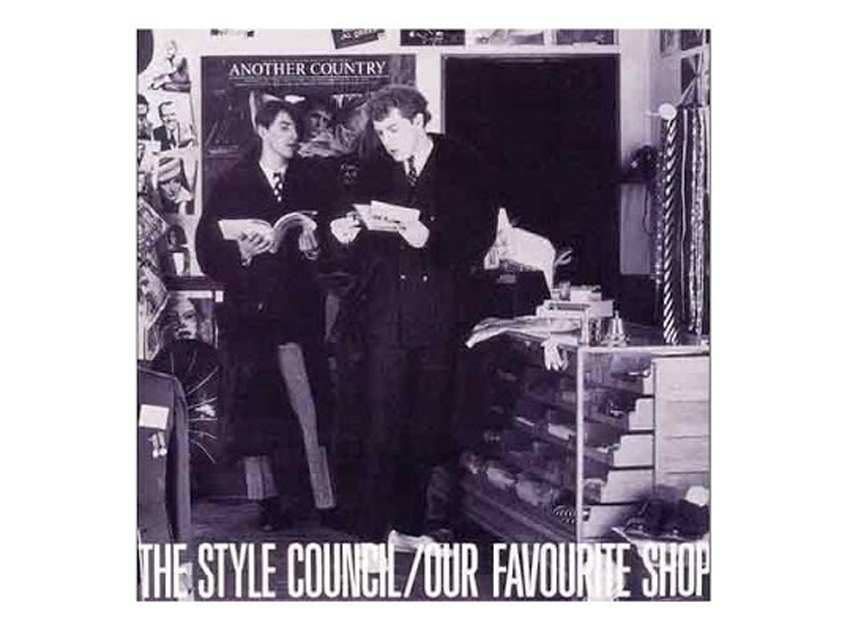
The Style Council - Our Favourite Shop (1985)
“They had a couple of releases before this one, which might have been released in the States under the title Internationalists. The one I had was called Our Favourite Shop, and it’s terrific.
“Like what Mick Jones did with Big Audio Dynamite, this is Paul Weller after The Jam redoing everything in such a cool way. It’s got some jazzy things and a bit of Latin music, and I really liked the infusion of all that. Just listening to it, you could tell that it’s things that Paul Weller and Mick Talbot really loved doing. It’s a great, great record.”
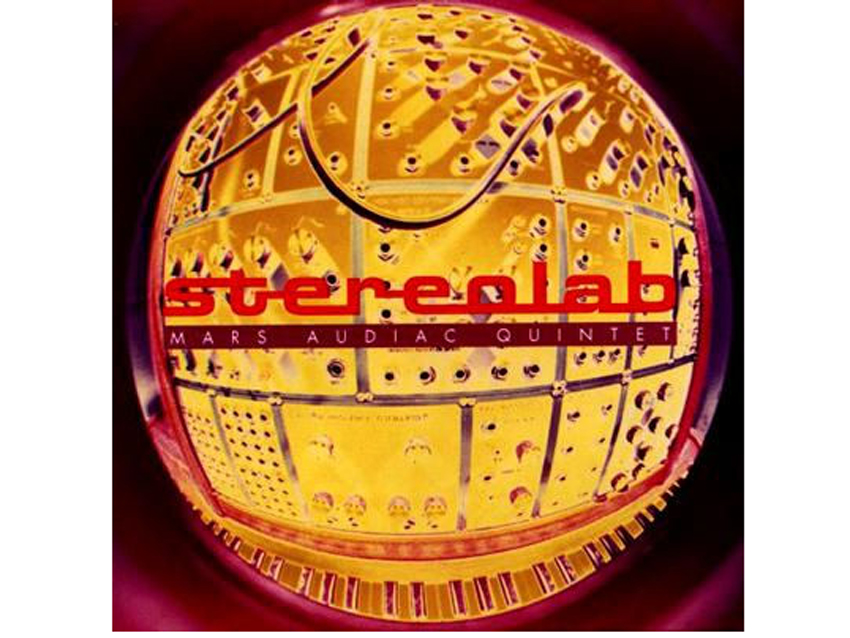
Stereolab - Mars Audiac Quintet (1994)
“Trenchmouth had a communal tape player. Damon [Locks] would make a mixtape of some dub, some punk and all sorts of things. One day, somebody gave us this Stereolab album and it just shut us up. We were so quiet listening to it – ‘What is this?’ It was hypnotic, with lots of organ and guitar, and repetitive in a good way.
“I felt as if I were jumping ahead in time. I never heard music like this before, and I guess I wasn’t yet exposed to a lot of synths and keyboards – everything was very guitar-y to this point. Stereolab were the first band to re-introduce me to keyboards as a warm, melodic instrument. And on top of it all, there was Lætitia Sadier’s voice – so beautiful.”
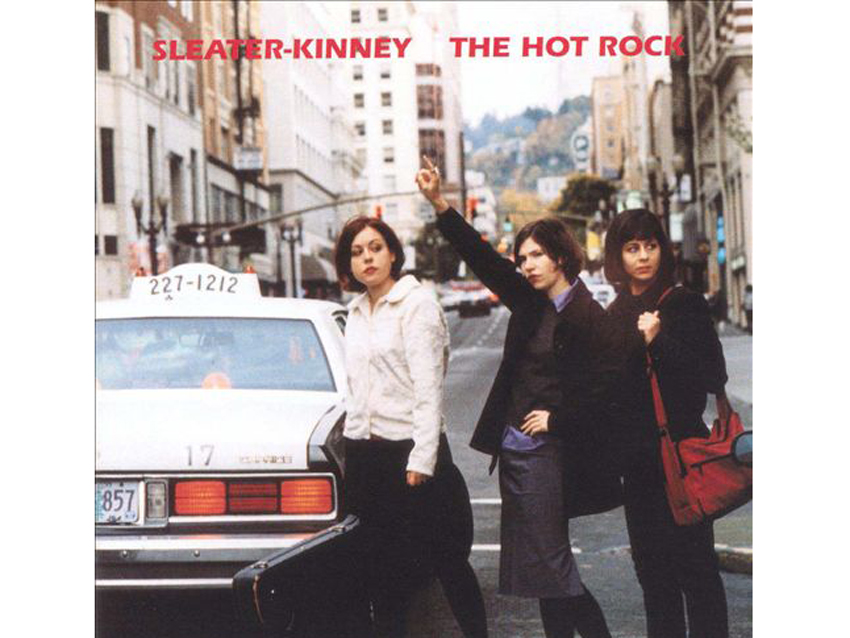
Sleater-Kinney - The Hot Rock (1999)
“I was staying at somebody’s house in Olympia, Washington, and this guy said to me, ‘Hey, do you want to hear the best music ever?’ And, of course, I said, ‘Yeah, sure.’ You know, like, ‘Knock yourself out.’
“He put on Call The Doctor, which was a couple of albums before The Hot Rock, and it really was indeed the best music I’d ever heard. ‘What is this?’ I said, because I just had to know what this great music was. It goes without saying that I became an immediate Sleater-Kinney fan.
“I listened to The Hot Rock in a very unhealthy way – all the way through, all the time. There wasn’t one second of the album I didn’t know. I just loved the whole thing. I was moving to LA, so I drove there and listened to the record the whole way down. And once I got there, I kept listening to it.
“Sleater-Kinney will always be a huge part of my life – obviously, I got as close as I could and befriended them. [Armisen co-created Portlandia and stars in the show with Sleater-Kinney's Carrie Brownstein.] But this album is so amazing. The drumming is great, the guitar playing is great, and everybody’s singing it great. The songs are just so… overworldly. And again, the album cover intrigued me. I would look at it and think, ‘I wanna know more about this place, Portland… ’
“I ask the band all the time, ‘How did you make the The Hot Rock?’ It’s funny to see them look at each other quizzically, like, ‘Yeah, how did we do that?’ I think sometimes when people make great art, they don’t really know how they did it. They’re caught up in what they’re creating and are unaware of their methods; everything – the whole ‘How did that happen?’ becomes this faded memory. But that’s neat to me, the mystery of music.”
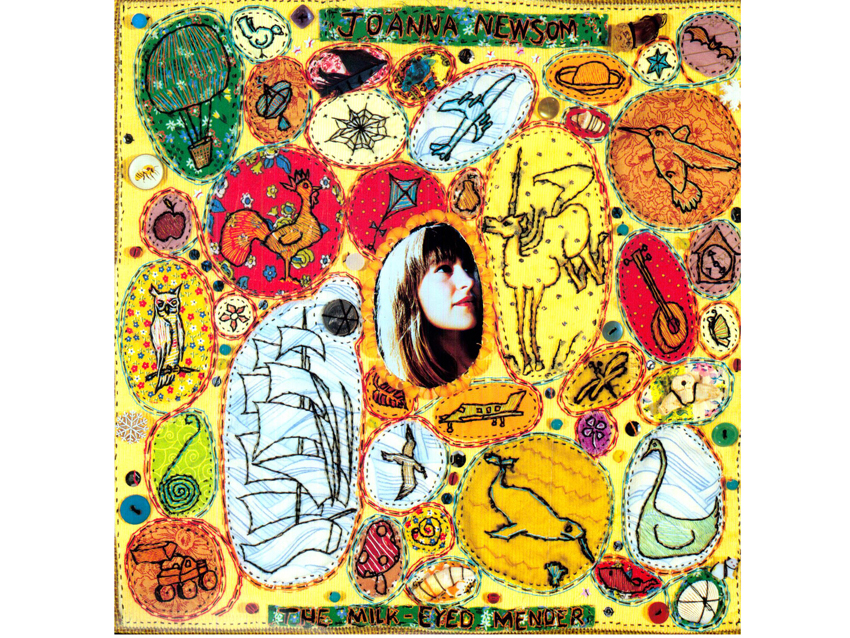
Joanna Newsom - The Milk-Eyed Mender (2004)
“This is kind of related to Sleater-Kinney because it’s an album that Carrie introduced me to. It’s a hard record to describe – the instrumentation and the singing are so uniquely Joanna Newsom. It's really kind of its own thing.
“I still believe in punk, and to me, this is a very punk record. I was at Carrie’s house when she put it on, and all at once it just turned me around; it was another one of those ‘Who is this?’ moments. It wasn’t just that she was playing the harp, but rather it was the way she played it – syncopated but melodic. The melodies were gorgeous, but there was a definite, hard rhythm going on.
“The lyrics… This is one of the first times when I sat down and said, ‘I have got to listen to these words.’ I never really did that before. Definitely an album that changed my life.”
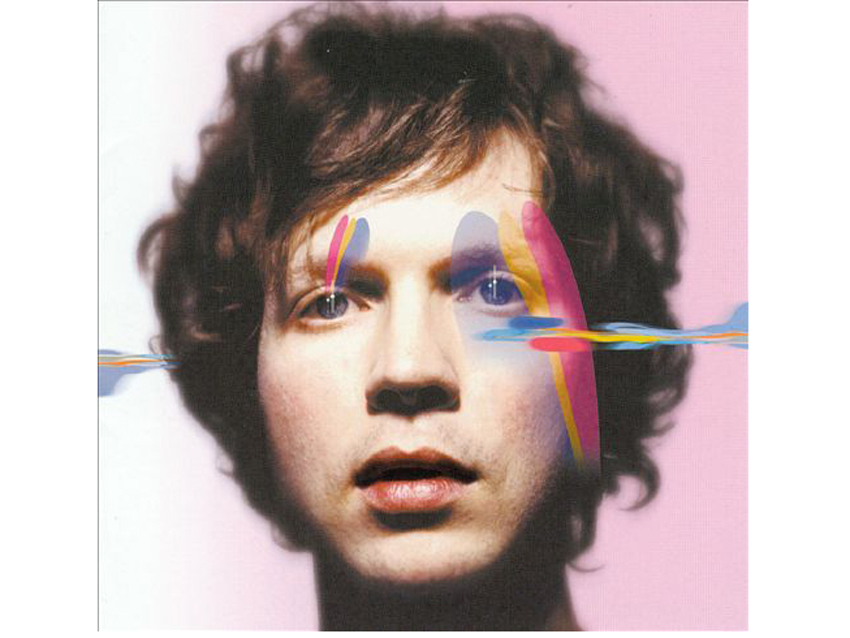
Beck - Sea Change (2002)
“For me, this album has become a very comfortable blanket. The record before it [Midnight Vultures, 1999] was quite different – it had a lot of dance elements to it. This album was like a stop sign telling everybody, 'OK, we're gonna sit down and listen now.'
“Sea Change has its own voice, its own theme, its own warmth. I think of it as almost being one big long song. It’s a welcoming, calming record, and I still listen to it. It gave me faith in the acoustic guitar as an instrument. I’ve always liked the sound of Beck’s voice, but the way he sings here is especially dreamy. The whole thing is fantastic.”

Joe is a freelance journalist who has, over the past few decades, interviewed hundreds of guitarists for Guitar World, Guitar Player, MusicRadar and Classic Rock. He is also a former editor of Guitar World, contributing writer for Guitar Aficionado and VP of A&R for Island Records. He’s an enthusiastic guitarist, but he’s nowhere near the likes of the people he interviews. Surprisingly, his skills are more suited to the drums. If you need a drummer for your Beatles tribute band, look him up.
"At first the tension was unbelievable. Johnny was really cold, Dee Dee was OK but Joey was a sweetheart": The story of the Ramones' recording of Baby I Love You
"Reggae is more freeform than the blues. But more important, reggae is for everyone": Bob Marley and the Wailers' Catch a Fire, track-by-track
"At first the tension was unbelievable. Johnny was really cold, Dee Dee was OK but Joey was a sweetheart": The story of the Ramones' recording of Baby I Love You
"Reggae is more freeform than the blues. But more important, reggae is for everyone": Bob Marley and the Wailers' Catch a Fire, track-by-track
![PRS Archon Classic and Mark Tremonti MT 15 v2: the newly redesigned tube amps offer a host of new features and tones, with the Alter Bridge guitarist's new lunchbox head [right] featuring the Overdrive channel from his MT 100 head, and there's a half-power switch, too.](https://cdn.mos.cms.futurecdn.net/FD37q5pRLCQDhCpT8y94Zi.jpg)








